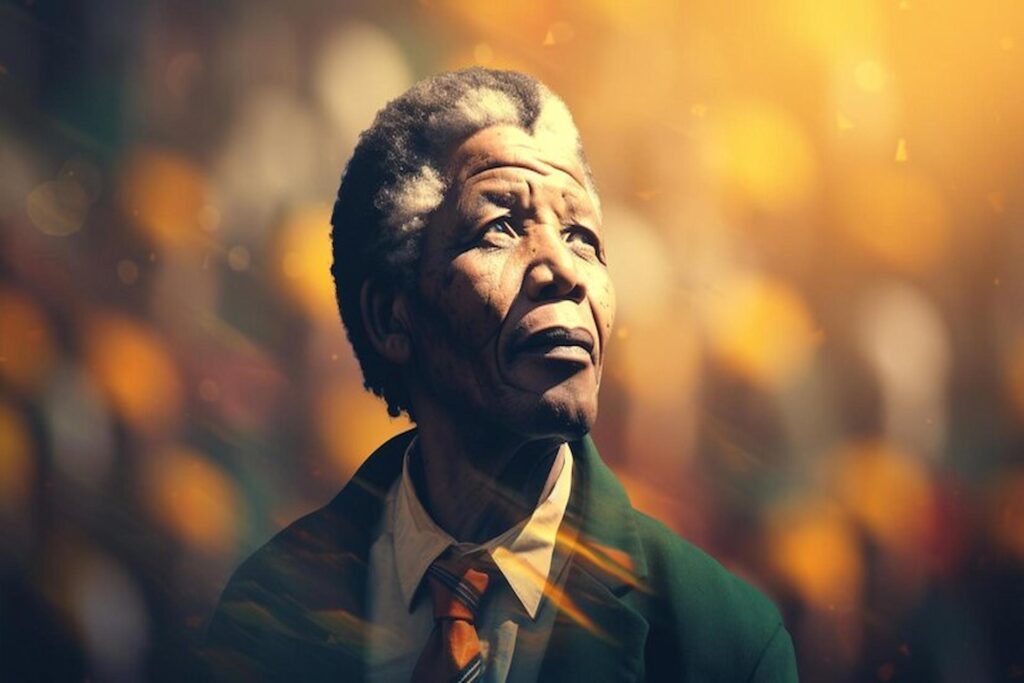Nelson Mandela’s life was a relentless battle against oppression, marked by systemic racial discrimination, prolonged imprisonment, and the Herculean task of uniting a divided nation. Discover the challenges that forged his path to becoming a global icon of resilience and justice.
In the face of systemic oppression, Nelson Mandela’s journey from prisoner to president is a testament to resilience and unwavering commitment to justice. His life was marked by formidable challenges that tested his resolve and shaped the course of a nation’s history. Delving into these obstacles offers profound insights into the complexities of South Africa’s struggle against apartheid and the enduring spirit of its people.
Introduction
Nelson Mandela, a central figure in the fight against apartheid, encountered numerous challenges that defined his leadership and legacy. From enduring personal sacrifices to navigating political upheavals, Mandela’s experiences reflect the broader struggles of a nation yearning for equality. Understanding these challenges provides a deeper appreciation of his human rights and social justice contributions.
This article explores the multifaceted obstacles Mandela faced, including systemic racial discrimination, prolonged imprisonment, internal conflicts within the African National Congress (ANC), and the daunting task of unifying a divided nation. Each section delves into specific aspects of his journey, highlighting the resilience and strategic acumen that enabled him to overcome adversity and inspire a global movement for change.
-
Early Life and Systemic Racial Discrimination
Born into a society entrenched in racial segregation, Mandela’s early experiences with systemic discrimination profoundly influenced his activism.
Apartheid Policies: Mandela witnessed firsthand the oppressive laws that marginalized non-white South Africans, fueling his determination to dismantle institutionalized racism.
Educational Barriers: Despite limited access to quality education for black South Africans, Mandela pursued higher learning, understanding its role in empowering oppressed communities.
-
Political Activism and Legal Repercussions
Mandela’s involvement in anti-apartheid activities led to significant legal challenges, including arrests and trials.
Treason Trial (1956-1961): Mandela and 155 others were arrested and charged with treason for their anti-apartheid activities, facing a protracted legal battle that sought to suppress the movement.
Rivonia Trial (1963-1964): Accused of sabotage, Mandela delivered his famous “I Am Prepared to Die” speech, articulating his commitment to the cause despite the possibility of a death sentence.
-
Imprisonment and Personal Sacrifices
Mandela’s 27-year imprisonment tested his resilience and had profound personal implications.
Robben Island (1964-1982): Confined to a small cell, Mandela endured harsh conditions designed to break his spirit, yet he remained steadfast in his convictions.
Family Separation: His incarceration led to prolonged separation from his family, causing personal anguish and highlighting the sacrifices made for the broader struggle.
-
Leadership Within the African National Congress (ANC)
Navigating internal dynamics within the ANC presented its own set of challenges.
Strategic Debates: Mandela played a pivotal role in steering the ANC’s approach, balancing calls for militant action with the pursuit of peaceful negotiations.
Maintaining Unity: He worked tirelessly to keep the movement cohesive, addressing ideological differences to present a united front against apartheid.
-
Negotiating the End of Apartheid
Mandela’s release from prison marked the beginning of complex negotiations to end apartheid.
Talks with the Government: Engaging with the apartheid regime required diplomatic acumen, as Mandela sought to achieve democratic reforms without inciting further violence.
Balancing Expectations: He had to manage the high hopes of oppressed South Africans while ensuring a peaceful transition to majority rule.
-
Presidency and Nation-Building
As South Africa’s first black president, Mandela faced the monumental task of unifying a fractured nation.
Truth and Reconciliation Commission: Mandela established this body to address past human rights abuses, promoting healing through restorative justice.
Economic Disparities: He confronted the challenge of addressing economic inequalities, striving to uplift marginalized communities while maintaining economic stability.
To wrap up
Nelson Mandela’s life was a testament to the power of resilience in the face of overwhelming adversity. Despite systemic oppression and personal sacrifices, his unwavering commitment to justice and equality serves as an enduring inspiration worldwide.
Mandela’s ability to navigate complex political landscapes, both within the ANC and in negotiations with the apartheid regime, underscores his exceptional leadership. His strategic acumen and dedication to unity were instrumental in South Africa’s transition to democracy.
As South Africa’s first black president, Mandela’s efforts in nation-building laid the foundation for a more equitable society. His legacy continues to influence global human rights movements, reminding us of the profound impact one individual’s courage and determination can have on history.



